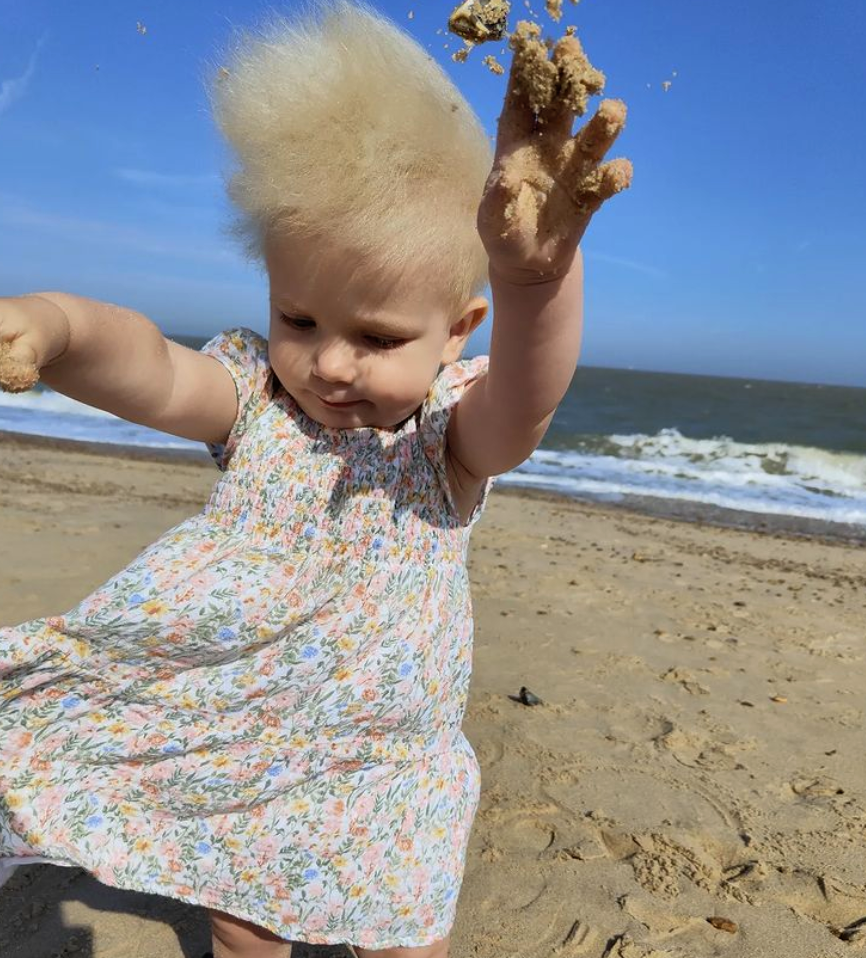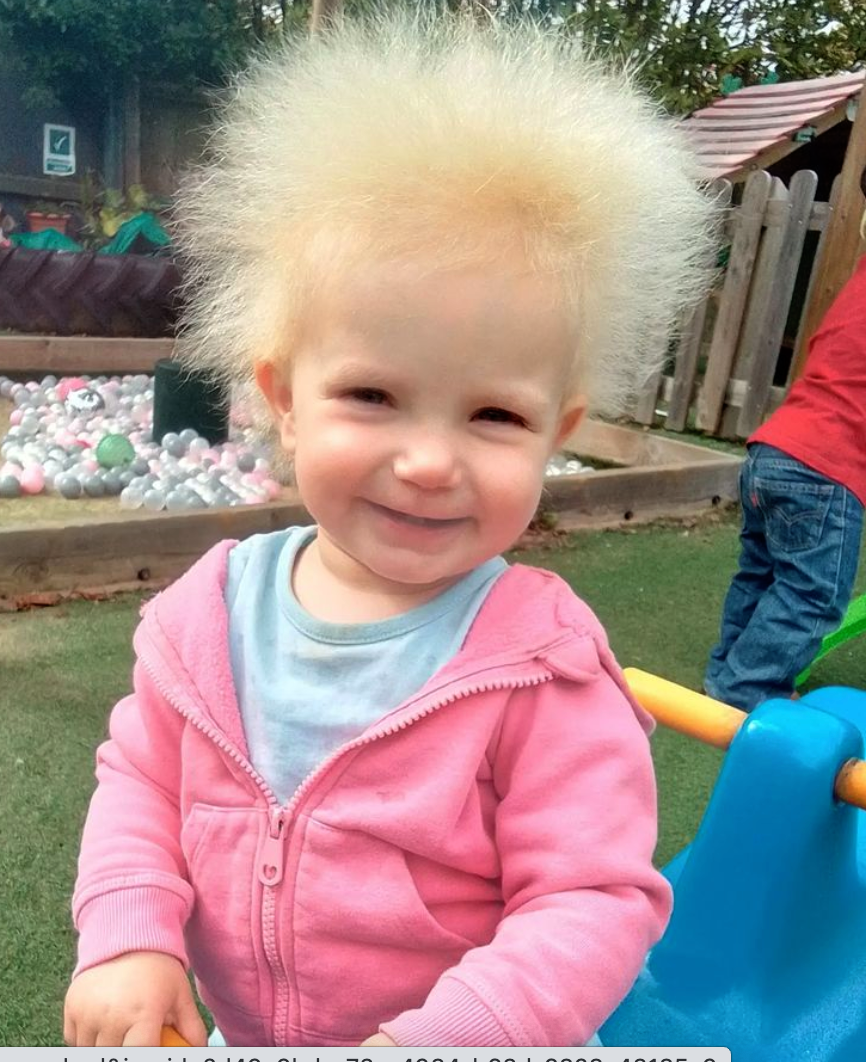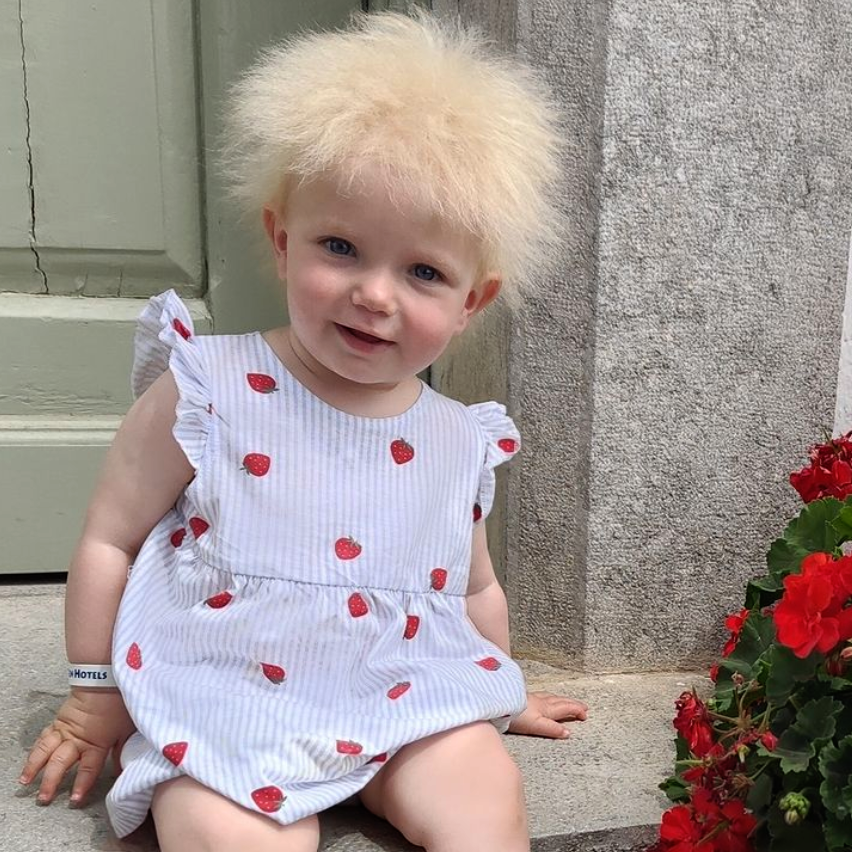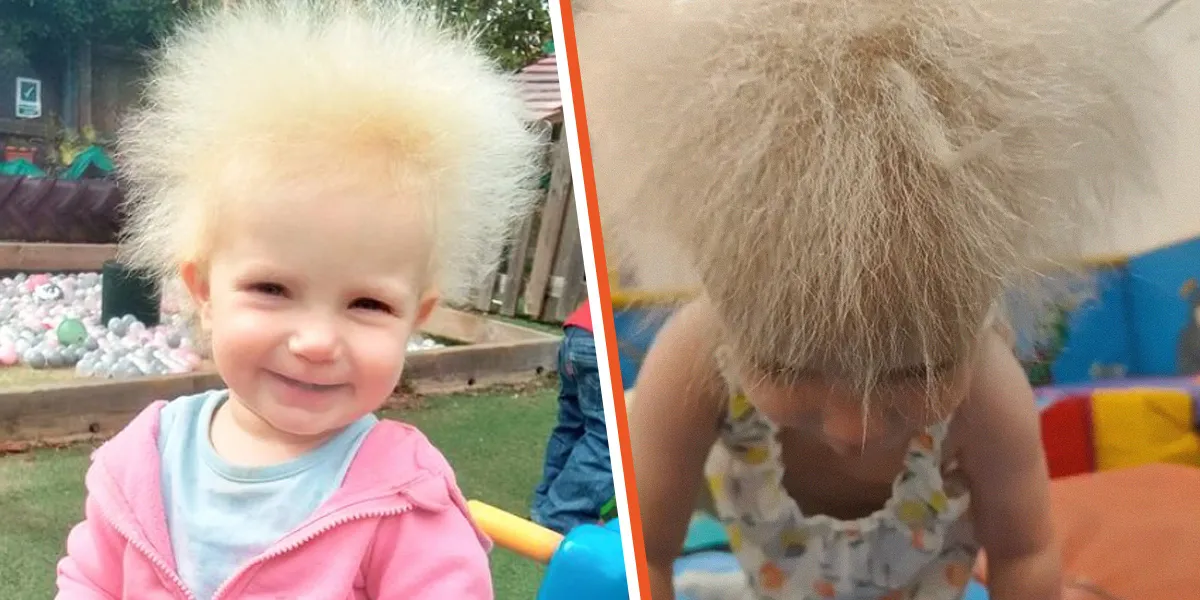Baby Born with Hair Condition That Makes Her Unique Is One of ‘Only 100 People’ in the World with It

When Charlotte and Kevin welcomed their youngest daughter, Layla, into the world, they had no idea she would go viral for one unexpected trait — her bright uncontrollable hair. Here’s Layla’s unconventional hair story.
28-year-old Charlotte and her 35-year-old husband, Kevin Davis, were elated when they welcomed their youngest daughter, Layla, into the world.
The couple shared one older son, Freddie, who was three years old. Layla’s first year of life was as normal as expected until her hair started changing drastically.

LAYLA’S DRASTIC HAIR TRANSFORMATION
When Layla was about a year old, Charlotte started noting that her growing hair wouldn’t lie flat on her head. “I think I was in denial and kept saying it was going to go flat,” Charlotte said.
But Layla’s platinum blonde hair just kept growing outward. Charlotte and Kevin decided to seek a diagnosis for Layla’s uncontrollable hair. When Layla was a year and a half, doctors diagnosed her with the extremely rare Uncombable Hair Syndrome.
Uncombable Hair Syndrome (UHS) is also known as spun glass hair. The condition is so rare that there are approximately only 100 cases in the world.
MORE ABOUT UNCOMBABLE HAIR SYNDROME

UHS was first established in 1973. The condition is characterized by dry, frizzy hair that stands on its end and is impossible to flatten.
“We have tried all sorts like blow-drying it, conditioning it, but we’ve just learned that this is just how it is,” Charlotte said.
Children with this condition share three genes that are altered: PADI3, TGM3, and TCHH. These genes are responsible for the shape of the hair.
THE RARITY OF UNCOMBABLE HAIR SYNDROME

Uncombable Hair Syndrome (UHS) is also known as spun glass hair. The condition is so rare that there are approximately only 100 cases in the world.
The syndrome develops more commonly within the first three years of a child’s life, but it has been known to develop as late as age 12. As children with this condition grow up — and usually by adolescence — their hair becomes much more manageable.
Due to the rarity of this condition, Charlotte doubted seeking a diagnosis. She said, “part of the reason I delayed getting her tested for it is because [there are] only one hundred people with it in the world – the chances of having it are so slim.”
PEOPLE’S REMARKS ABOUT LAYLA’S HAIR

Being out in public with Layla garnered a lot of attention. People often remark that she looked like UK’s former Prime Minister, Boris Johnson.
These remarks amused Layla’s parents, who often thought their daughter looked slightly like the late renowned scientist Albert Einstein.
Layla’s older brother Freddie also noticed that his and his sister’s hair looked very different.
LAYLA’S INTEREST IN HER HAIR
Charlotte also said that she thought Layla liked the attention. “I just want her to grow up and know it is awesome even though she looks different to other people,” she said.
As soon as Layla noticed that her hair looked markedly different from other people around her, she began to take more interest in it herself. She explained:
“She likes to play with her hair, but she has to get used to other children coming over in a playground to ruffle her hair.”
THE PARENTS CREATE AN INSTAGRAM ACCOUNT

Layla’s older brother Freddie also noticed that his and his sister’s hair looked very different. “…sometimes he will stroke his hair and then her hair,” Charlotte observed.
Charlotte, along with her husband, created an Instagram account for Layla that aims to teach people about the condition, UHS, and show off her adorable face.
Explaining why they created the Instagram account, Charlotte wrote, “We hope she will grow to love her unique look and appreciate it as she should.”
COMMENTS FROM THE READERS
When Layla’s story about her hair went viral, thousands of people left positive and encouraging comments under a post from “The Daily Mail.”
Layla’s parents are a great example of how to teach children confidence despite being different from other children. How would you react if your child had the same condition?
If you enjoyed this story, you’d love this one about a woman who had a slim chance of conceiving a baby. But after she miraculously gave birth to a little boy, she found out that she would die within a few years.